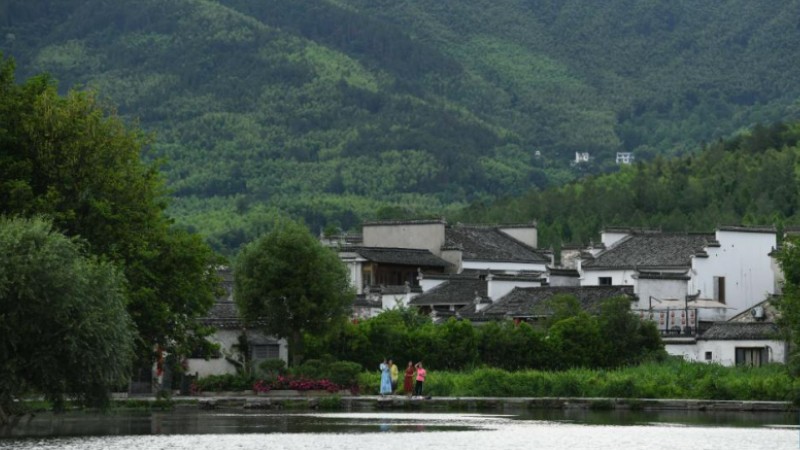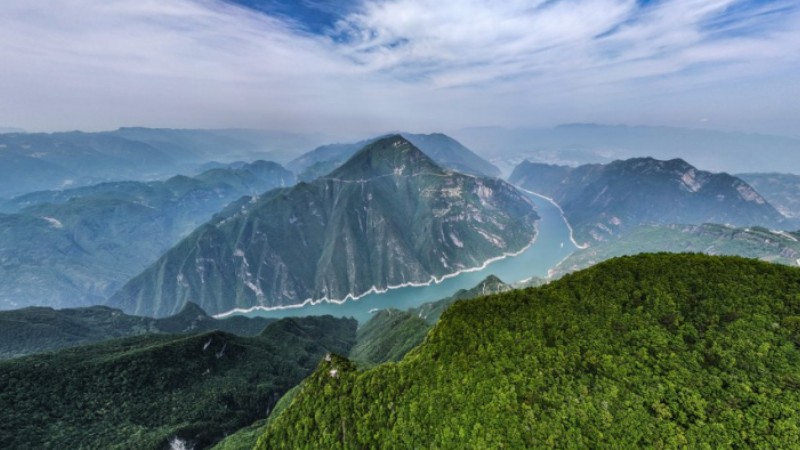Commentary: Who is endangering peace in Asia-Pacific?
BEIJING, June 7 (Xinhua) -- It seems that the United States is a true believer in the theory claiming that "repeat a lie often enough, and it becomes the truth."
For quite some time, the arrogant superpower has left almost no stone unturned to slander China as Asia's "bad guy," while Washington is being forced to respond. The latest episode of this smear campaign took place in Singapore.
At the just-concluded Shangri-La Dialogue that focused on security, Washington spared no effort to play innocent and repeat its cliche that China poses a threat to the "freedom of navigation," a pretext abused by the United States to justify its military presence in the region.
"Why do all these incidents happen near China's sovereign waters and airspace, not in areas near other countries?" Chinese State Councilor and Minister of National Defense Li Shangfu asked back when answering a question at the Shangri-La Dialogue.
"Chinese ships and aircraft never go near other countries' airspace and waters," Li pointed out the truth.
If a person armed to his teeth has been wandering around your house and peeping into your windows quite often, it is reasonable and legitimate for you to take some action. But when you ask the person what he is doing here, and request him to stay away from your property, the person goes insane and curses you for hindering his "freedom."
Ludicrous such a behavior may sound, but that is exactly the logic of those hardliners in Washington who believe being an "exceptional" superpower, the United States can feel free to do anything and no one is allowed to even complain about it.
Containing China's rapid development is the only viable reason that can explain Washington's increasingly tough China policy. For America's political leaders, whose only expertise in running a country is to play partisan politics, holding China back has become their most convenient option to keep Washington's global supremacy.
In recent years, Washington is stepping up its siege around China in the Asia-Pacific. In its own words, it is determined to shape the strategic environment around Beijing. For those ends, it has been peddling the so-called "Indo-Pacific strategy" and "great power competition" in an attempt to build an alliance in the Asia-Pacific region against China.
It has also constantly staged war games with Japan, South Korea and other countries in the region, and mustered Cold-War style groupings such as the AUKUS deal and Quad alliance.
By forcing regional countries to get into its small anti-China cliques, the United States has in fact been tearing apart the world's most dynamic region, and pushing it ever closer to confrontation and conflicts.
"The best way to prevent this from happening is that military vessels and aircraft not come close to our waters and airspace. What does this have to do with your security? Watch your own territorial waters and airspace, then there will not be any problems," Li said.
Perhaps the next time when the United States, the real-deal troublemaker in the Asia-Pacific, wants to accuse China of stoking regional instability, it should first look in the mirror. It should also sober up to the fact that repeating lies will never make it a fact.
Photos
Related Stories
- Cold-War mentality, bloc confrontation unpopular in Asia-Pacific: FM spokesperson
- China urges for end to incitement to regional confrontation
- Yearender: Asia-Pacific's dynamic economy looking to move ahead amid headwinds
- Commentary: Dividing countries not way towards stable Asia-Pacific
- "Reliable development partner" -- China in eyes of Asia-Pacific countries
Copyright © 2023 People's Daily Online. All Rights Reserved.









